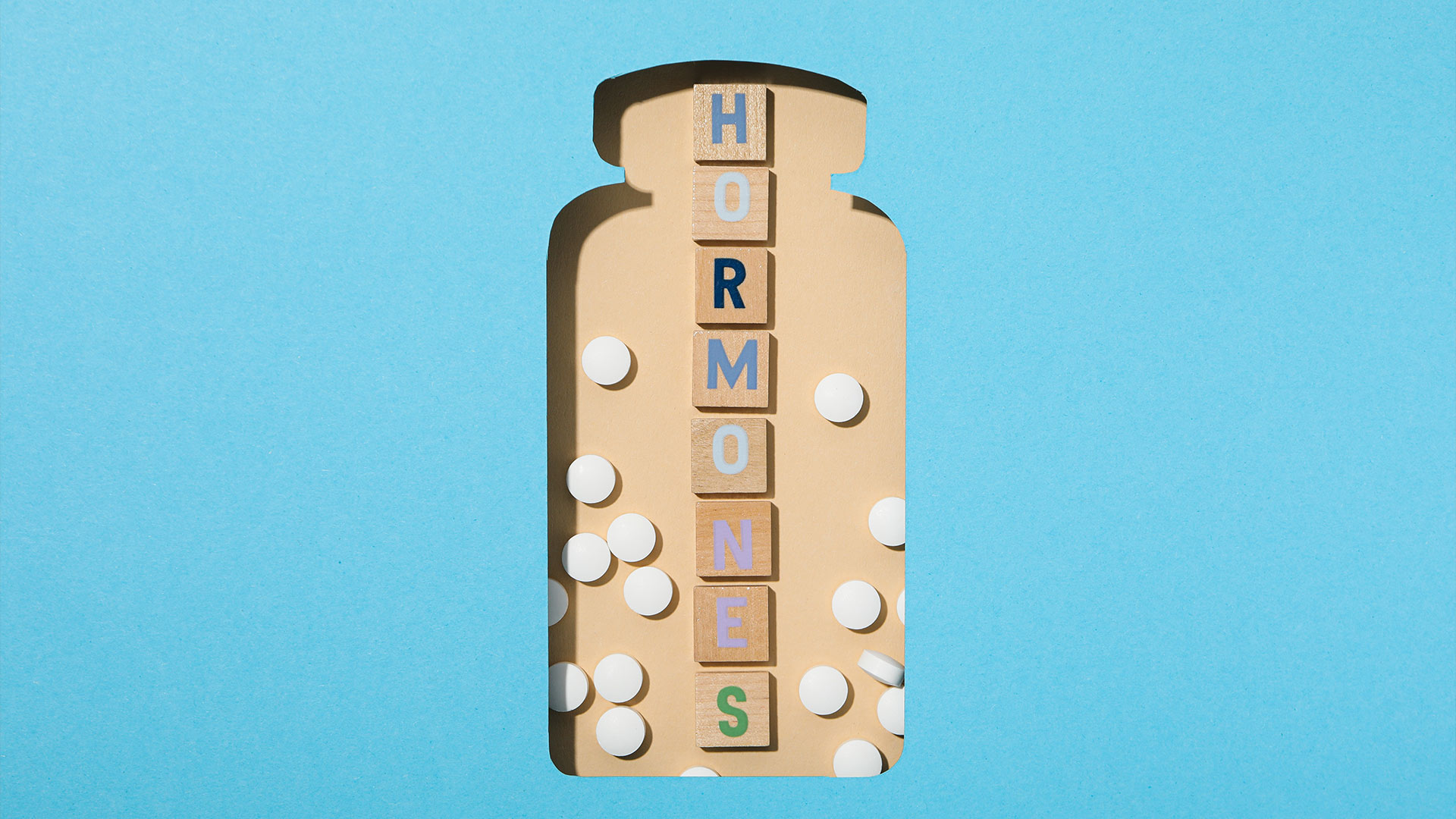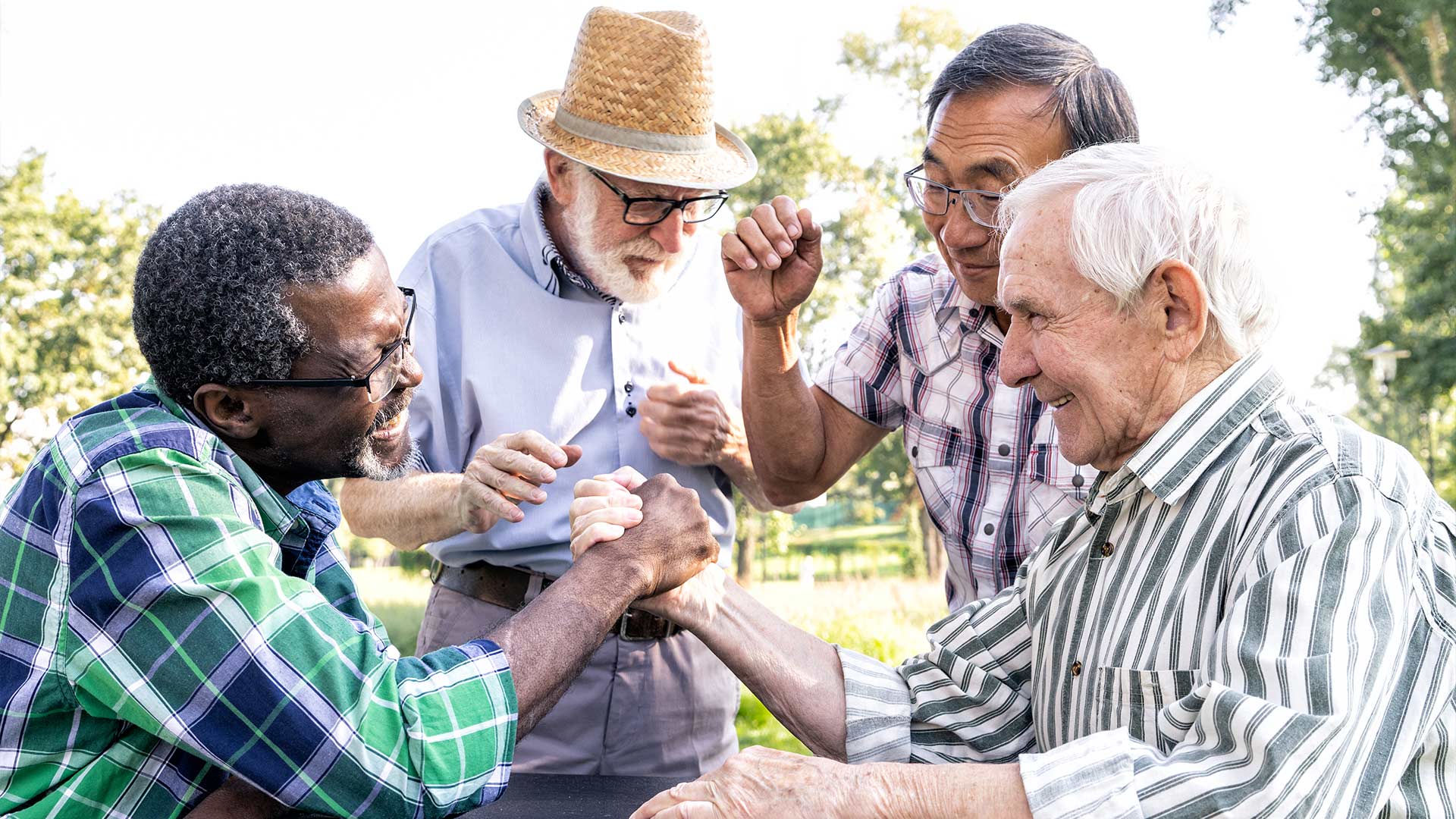How Aging Affects Men’s Hormones and What You Can Do About It
Aging doesn’t mean you have to give up your vitality or energy. While hormonal changes are a natural part of growing older, there are many ways to manage those changes and continue to feel your best.

Aging is a natural process that affects everyone, but for men, the hormonal changes that come with it can sometimes be overlooked. As we age, our hormone levels naturally decline, which can impact everything from energy and mood to muscle mass and sexual health. But the good news is that understanding how aging affects men’s hormones and knowing what you can do to manage those changes can help you maintain a healthy, vibrant lifestyle as you grow older.
In this article, we’ll explore how aging impacts men’s hormone levels, what symptoms to look out for, and practical ways to maintain balance and vitality throughout the aging process.
The Role of Hormones in Men’s Health
Hormones are chemical messengers that regulate many essential functions in the body. They control metabolism, mood, reproduction, growth, and more. For men, key hormones include testosterone, growth hormone, and thyroid hormones. These hormones are responsible for maintaining energy, muscle mass, libido, mood, and overall well-being.
As men get older, typically starting in their late 30s or early 40s, their hormone levels begin to decline. This is a natural part of the aging process, but the decline can cause noticeable changes. Let’s look at the most common hormonal shifts that men experience as they age and what they can do about them.
How Aging Affects Men’s Hormones
1. Testosterone Levels Decline
Testosterone, the primary male sex hormone, is responsible for muscle growth, energy, libido, bone density, and even mood regulation. As men age, testosterone levels naturally begin to decline, typically by about 1% per year after the age of 30. This gradual decline can lead to several symptoms, including:
- Fatigue and low energy levels - Decreased muscle mass and strength - Increased body fat, especially around the abdomen - Reduced libido and sexual function - Mood swings and irritability - Cognitive decline and memory issues
The decrease in testosterone is often referred to as andropause, the male equivalent of menopause in women. While testosterone levels typically don’t decline as drastically as estrogen levels do in women, the effects can still be significant.
2. Growth Hormone Decline
Growth hormone (GH) is responsible for stimulating growth and development, as well as maintaining tissue repair and regeneration throughout life. As men age, growth hormone production naturally declines, which can affect muscle mass, fat distribution, and overall body composition. Lower GH levels can also contribute to:
- Increased body fat - Decreased muscle mass and strength - Reduced energy levels - Slower recovery from injuries and exercise
Growth hormone is also involved in maintaining skin elasticity and preventing wrinkles, so a decline in GH can contribute to visible signs of aging, such as sagging skin and wrinkles.
3. Thyroid Hormones and Metabolism
The thyroid gland produces hormones that regulate metabolism, energy, and temperature regulation. As men age, the thyroid may become less efficient, leading to imbalances in thyroid hormones like T3 (triiodothyronine) and T4 (thyroxine). A decline in thyroid hormone levels can lead to:
- Weight gain, particularly around the midsection - Fatigue and sluggishness - Dry skin and hair thinning - Cold intolerance and changes in body temperature
Hypothyroidism, a condition where the thyroid doesn’t produce enough hormones, becomes more common as men age, and it can contribute to many age-related symptoms.
What You Can Do to Manage Hormonal Changes
While hormonal changes are inevitable with aging, there are several steps men can take to manage these changes and maintain their health, energy, and vitality. Here are some practical strategies:
1. Exercise Regularly
One of the most effective ways to manage hormone levels and combat the effects of aging is through regular exercise. Strength training, in particular, is excellent for boosting testosterone levels and stimulating the production of growth hormone. It helps build muscle mass, improve metabolism, and keep the body strong and resilient.
In addition to strength training, regular aerobic exercise (like walking, running, or cycling) can help maintain heart health, regulate blood sugar levels, and improve overall energy. Exercise also has a positive impact on mood, reducing the stress hormone cortisol, which can further help maintain hormonal balance.
Real Example: Hugh Jackman, actor and fitness enthusiast, has publicly shared his commitment to strength training and exercise as a key factor in maintaining his youthful appearance and energy levels as he ages.
2. Eat a Balanced Diet
What you eat plays a major role in balancing your hormones. Focus on eating a balanced diet that includes:
- Healthy fats (avocados, olive oil, nuts, seeds) to support hormone production - Lean proteins (chicken, fish, legumes) to build muscle and support testosterone levels - Fiber-rich vegetables and fruits to help regulate insulin levels and improve metabolism - Whole grains to stabilize blood sugar and support thyroid function
Avoid processed foods, excessive sugar, and trans fats, which can disrupt hormone levels and contribute to weight gain and inflammation.
Real Example: Tom Brady, the legendary NFL quarterback, follows a diet that’s rich in vegetables, lean protein, and healthy fats to maintain his performance on the field. He emphasizes eating nutrient-dense foods that support hormone health and overall vitality.
3. Prioritize Sleep
Sleep is essential for hormone production and balance. During sleep, the body produces important hormones like growth hormone and testosterone, and sleep is crucial for restoring energy levels. Aim for 7–9 hours of quality sleep each night to allow your body to repair and rejuvenate.
To improve sleep quality, establish a calming bedtime routine, avoid caffeine and heavy meals before bed, and create a relaxing environment by dimming the lights and keeping the room cool.
Real Example: LeBron James, one of the most successful athletes of all time, prioritizes sleep as part of his recovery routine. He is known to sleep up to 12 hours on some days to ensure he’s well-rested and ready for peak performance.
4. Manage Stress
Chronic stress can lead to elevated levels of cortisol, which can disrupt hormone balance, contribute to weight gain, and increase the risk of other health issues. Practicing stress management techniques such as meditation, yoga, or deep breathing exercises can help lower cortisol levels and improve overall hormone regulation.
Engaging in hobbies, spending time with loved ones, and enjoying nature are also great ways to reduce stress and maintain emotional well-being.
Real Example: Richard Branson, the founder of Virgin Group, has shared that he uses exercise, meditation, and time in nature to help manage stress and maintain his vitality at 70 years old.
5. Consider Hormone Replacement Therapy (HRT)
For some men, testosterone replacement therapy (TRT) or other forms of hormone replacement therapy (HRT) may be appropriate to restore hormone balance and address symptoms related to aging. It’s important to consult with a healthcare provider who can assess your hormone levels and recommend the right course of action.
HRT can help improve energy, muscle mass, and mood, but it should always be used under medical supervision to avoid potential risks, such as cardiovascular disease or prostate issues.
Managing Hormonal Changes for Healthy Aging
Aging doesn’t mean you have to give up your vitality or energy. While hormonal changes are a natural part of growing older, there are many ways to manage those changes and continue to feel your best. Regular exercise, a balanced diet, quality sleep, stress management, and, when necessary, hormone replacement therapy can all play a role in keeping your hormones balanced and supporting your overall health.
By taking proactive steps to maintain hormonal balance, you can age gracefully and continue to enjoy a vibrant, active lifestyle.


